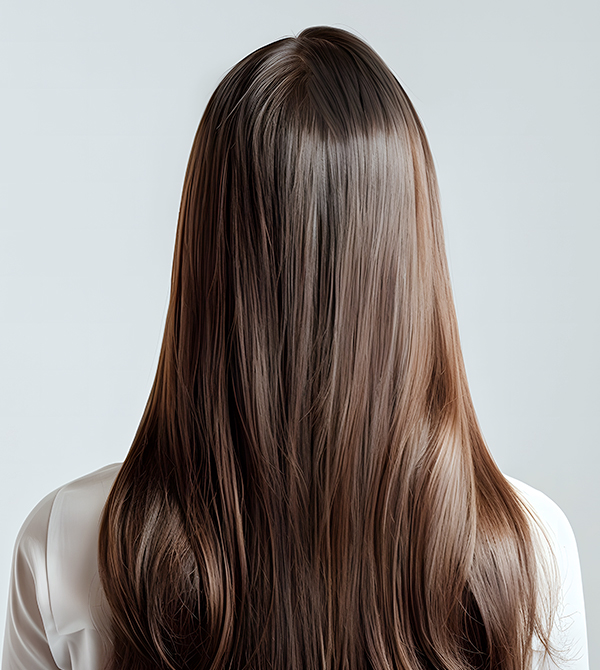
Views: 0 Author: Site Editor Publish Time: 2025-03-26 Origin: Site
The allure of expensive shampoos often captivates consumers seeking the best for their hair. Price tags suggest a superior quality, but is this truly the case? We aim to dissect the relationship between cost and efficacy in hair care products. Understanding the science behind shampoos can help consumers make informed choices. For those interested in exploring a range of Shampoos, insights into their formulation are crucial.
Shampoos are complex formulations designed to cleanse and nourish hair. They contain surfactants that remove dirt and oil, conditioners that enhance texture, and various additives for fragrance and color. The fundamental components remain consistent across price ranges, but the concentration and quality of ingredients can vary.
Expensive shampoos often boast natural or organic ingredients. Natural extracts like aloe vera, coconut oil, and argan oil have perceived benefits. However, synthetic ingredients can provide similar efficacy at a lower cost. The key is understanding how these components interact with hair.
Premium shampoos may offer specialized benefits like color protection, damage repair, or scalp health. Advanced formulations include technologically enhanced ingredients like peptides and antioxidants. These can provide targeted results for specific hair concerns.
Branding significantly influences consumer perception. High-end brands invest in marketing that elevates product status. This can create a perceived value beyond the actual efficacy. Consumers may associate higher prices with luxury and superior performance.

Research on shampoo efficacy reveals mixed results. A study published in the Journal of Cosmetic Science found that expensive shampoos did not significantly outperform their cheaper counterparts in terms of basic cleansing. However, specialized shampoos with active ingredients showed benefits in scalp health and hair strength.
Evaluating the cost versus benefits involves assessing individual hair needs. For general cleansing, affordable shampoos may suffice. Those with specific concerns like dandruff, hair loss, or color maintenance might find value in pricier options with targeted ingredients.
Some expensive shampoos emphasize eco-friendly practices, using sustainable ingredients and recyclable packaging. Consumers valuing environmental responsibility might prefer these options. Brands like Oyunde promote environmental protection and health, aligning with green lifestyle pursuits.
User experiences vary widely. Testimonials often highlight improved hair texture and manageability with higher-end products. Online reviews can provide insights but should be considered alongside scientific data and personal testing.
Hair type significantly influences product effectiveness. Curly, straight, fine, or coarse hair may respond differently to ingredients. Understanding individual hair needs is essential when selecting a shampoo.
Affordable shampoos with quality ingredients are available. Brands focus on creating effective formulations without premium pricing. Exploring options within the range of Shampoo in Hair Care can reveal suitable products.
Hair care professionals suggest that regular cleansing and proper hair maintenance are more critical than the shampoo's price. Ingredients that address specific issues should be the focus rather than brand prestige.
The decision to invest in expensive shampoos depends on individual needs and values. While premium products offer benefits, similar results can often be achieved with more affordable options. An informed approach considers the ingredients, hair type, and desired outcomes. Emphasizing environmental and health aspects aligns with a holistic view of personal care.
1. Do expensive shampoos work better than cheaper ones?
Research indicates that while expensive shampoos may contain higher-quality ingredients, the basic cleansing ability remains similar across price ranges. The effectiveness depends on specific hair needs and the presence of targeted ingredients.
2. What should I look for in a shampoo if I have a sensitive scalp?
Select shampoos with gentle, natural ingredients free from harsh chemicals like sulfates and parabens. Brands focusing on environmental protection and health, such as Oyunde, offer products designed for sensitive skin.
3. Are natural ingredients better for my hair?
Natural ingredients can be beneficial, providing nourishment without synthetic additives. However, effectiveness varies, and some synthetic ingredients are safe and effective. It's essential to read labels and understand ingredient functions.
4. How do I know if a shampoo is environmentally friendly?
Look for certifications or statements regarding sustainable practices, eco-friendly ingredients, and recyclable packaging. Companies committed to environmental protection often provide this information transparently.
5. Can I achieve salon-quality results with affordable shampoos?
Yes, many affordable shampoos offer quality formulations. Combining them with proper hair care techniques can yield excellent results. The key is selecting products that suit your hair type and concerns.
6. Do expensive shampoos last longer?
Some premium shampoos are more concentrated, requiring less product per use. This can extend the lifespan of the bottle, potentially offsetting the higher cost. It's important to follow usage instructions for optimal results.
7. Should I switch shampoos regularly?
Hair can build up resistance to certain ingredients over time. Rotating shampoos or using clarifying treatments occasionally can maintain effectiveness. Pay attention to how your hair responds and adjust accordingly.